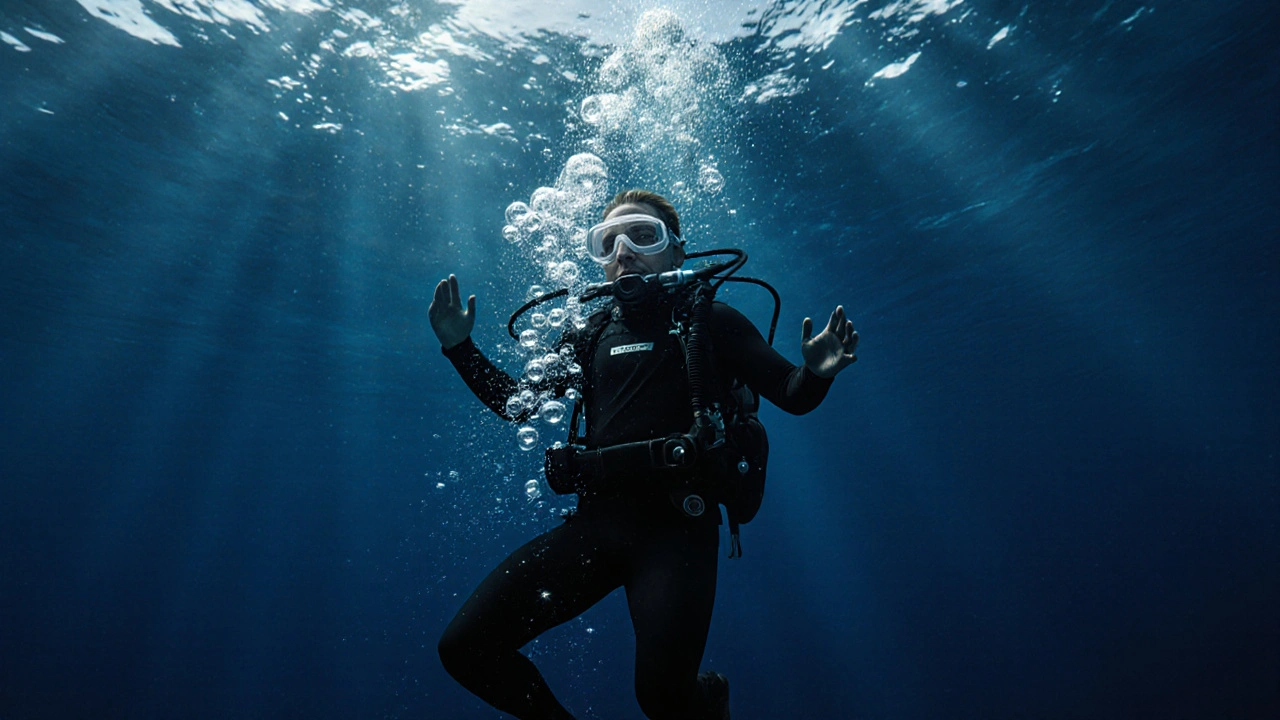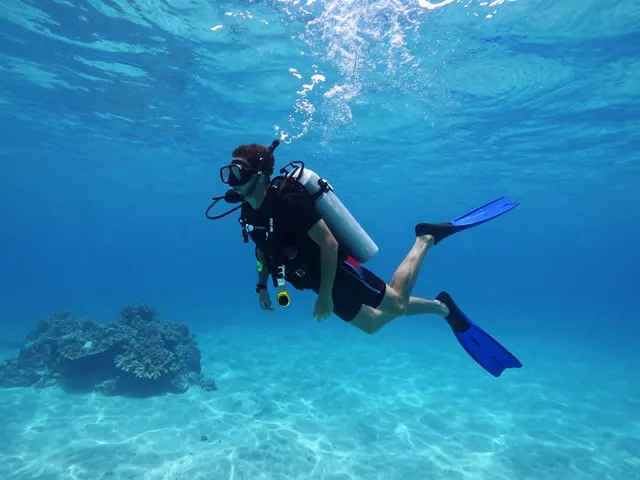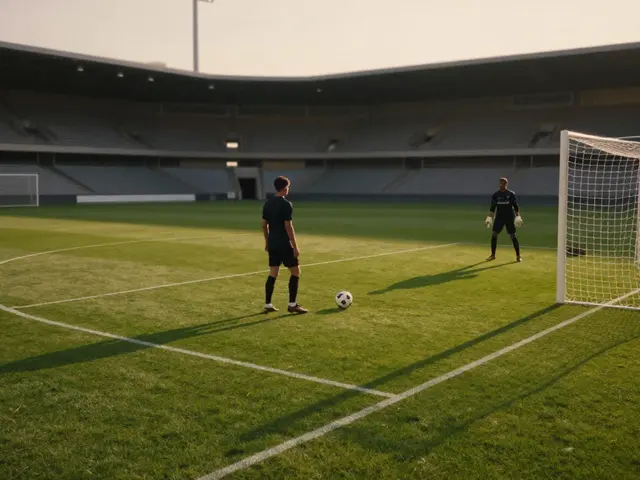Rychlé vynoření: Co to je a proč je klíčové pro potápěče
When you surface too fast, your body doesn’t have time to adjust—and that’s when things go wrong. rychlé vynoření, náhlé vystoupení z vody bez postupného snižování hloubky. Also known as dekomprese, it is a direct threat to any diver, whether you’re exploring sunken ships off Crete or diving near Cyprus reefs. This isn’t just theory—it’s biology. Nitrogen builds up in your blood during a dive. If you rise too quickly, it forms bubbles. Those bubbles can block blood flow, damage nerves, or even stop your heart.
Most people think only deep dives are dangerous, but even shallow dives can cause problems if you surface too fast. A dive to 10 meters for 30 minutes? Still risky. The body doesn’t care how deep you went—it cares how fast you came up. That’s why professional divers follow ascent rates: no faster than 9 meters per minute. Even recreational divers need this rule. The dekompresní povinnosti, požadavky na bezpečné vynoření podle hloubky a doby potápění aren’t suggestions—they’re survival protocols. Skip them, and you’re gambling with your nervous system.
It’s not just about speed. It’s about control. A slow, steady ascent lets your body release nitrogen naturally. Stop. Look around. Breathe normally. Don’t panic. Panic leads to rapid movement, and rapid movement leads to injury. The zadržení dechu, zadržování dechu během vynořování is one of the biggest mistakes—even experienced divers do it. Holding your breath while ascending can cause lung overexpansion. That’s not a myth. That’s a hospital visit.
Look at the posts here. You’ll find guides on diving in Crete, diving in Cyprus, scuba diving basics, and even how whales hold their breath for 90 minutes. Why? Because they all connect to one truth: water changes how your body works. What’s natural on land can kill you underwater. The whale doesn’t rush. It doesn’t panic. It evolved to manage pressure. You? You need to learn.
There’s no magic trick. No shortcut. Just discipline. Slow ascent. Controlled breathing. Respect the depth. The articles below show you where to dive safely, what gear to use, and how to avoid the mistakes that send people to the emergency room. Whether you’re just starting or you’ve been diving for years, rychlé vynoření is something you can’t afford to ignore. Get it right—or don’t go down at all.

- lis 7, 2025
- Publikoval Lenka Novotná
Proč se nesmí potápěč rychle vynořit? Rizika dekompresní nemoci
Rychlé vynoření z potápění může způsobit dekompresní nemoc - životně nebezpečný stav způsobený bublinkami dusíku v těle. Zjistěte, proč je bezpečnostní zastávka nezbytná a jak se vyhnout riziku.
Kategorie
- Sport (28)
- Sport a fitness (25)
- Sportovní pravidla a tipy (25)
- Lyžování a zimní sporty (21)
- Cestování a dobrodružství (14)
- Sport a outdoor (12)
- Fitness a kulturistika (12)
- Sport a volný čas (10)
- Tenis a pravidla (10)
- Cestování (9)
Nejnovější příspěvky
©2026 osave.cz. Všechna práva vyhrazena




